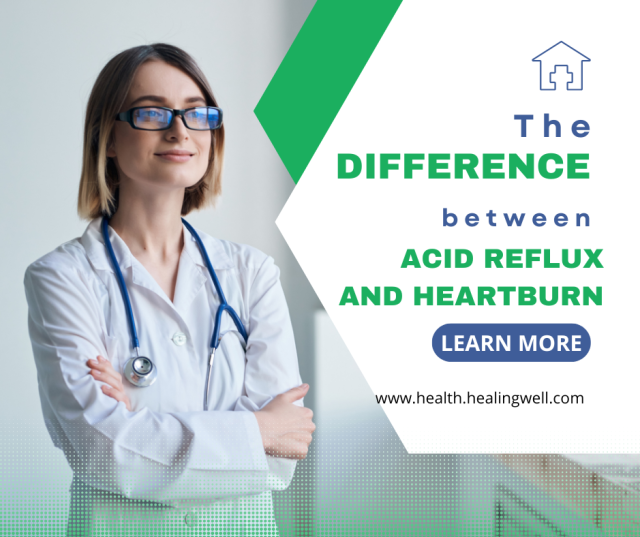Introduction
Have you ever eaten a heavy meal and then felt a burning sensation in your chest? While many people use the terms acid reflux and heartburn interchangeably, they are not exactly the same thing. In fact, understanding the difference between acid reflux and heartburn is crucial for managing symptoms and finding the most effective treatment. Although they often occur together, each has unique characteristics that can guide diagnosis and care. Fortunately, healthcare providers have many tools to help differentiate and treat these digestive issues effectively.
Table of Contents
- What Is Acid Reflux?
- What Is Heartburn?
- Key Differences Between Acid Reflux and Heartburn
- Diagnosis and Treatment Options
What Is Acid Reflux?
Acid reflux, also known as gastroesophageal reflux (GER), occurs when stomach acid flows backward into the esophagus. This backward flow can irritate the lining of the esophagus, leading to symptoms such as regurgitation, sore throat, coughing, and even chest pain. Over time, untreated acid reflux can result in a more severe condition known as gastroesophageal reflux disease (GERD).
Interestingly, acid reflux is not always accompanied by heartburn. In fact, some patients experience what’s known as “silent reflux,” where symptoms are more subtle and may not involve a burning sensation. Risk factors for acid reflux include obesity, smoking, pregnancy, and certain medications. Moreover, lifestyle habits like eating large meals or lying down immediately after eating can worsen the condition.
What Is Heartburn?
Heartburn is a symptom rather than a condition itself. It presents as a burning pain behind the breastbone, often after eating or at night. This discomfort is caused by stomach acid irritating the esophagus, which does not have the same protective lining as the stomach.
Heartburn tends to be episodic and may be triggered by specific foods or habits. Spicy foods, caffeine, chocolate, and acidic fruits are common culprits. Alcohol and stress can also exacerbate the sensation. While occasional heartburn is usually harmless, frequent episodes may suggest underlying acid reflux or GERD.
Key Differences Between Acid Reflux and Heartburn
Although they are closely related, acid reflux and heartburn are not synonymous. Acid reflux is the physiological process where stomach acid flows into the esophagus. In contrast, heartburn is the symptom that this process often causes.
To clarify further, all heartburn is caused by acid reflux, but not all acid reflux results in heartburn. This distinction is important because some patients may have acid reflux without the classic burning sensation. For instance, a chronic cough or hoarseness might indicate acid reflux in disguise.
Understanding these differences helps clinicians tailor their treatment approaches. For example, someone with heartburn as their primary symptom might benefit from antacids or H2 blockers, while a patient with silent reflux might require lifestyle changes and further diagnostic testing.
Diagnosis and Treatment Options
Diagnosing acid reflux and heartburn typically starts with a review of symptoms and medical history. Clinicians may use a trial of medication, such as proton pump inhibitors (PPIs), to confirm the diagnosis. If symptoms persist or worsen, additional testing like endoscopy or pH monitoring may be necessary.
Treatment options vary depending on symptom severity and frequency. Lifestyle changes are often the first line of defense. These include losing weight, elevating the head of the bed, avoiding trigger foods, and eating smaller meals. In addition, avoiding meals within three hours of bedtime can be particularly beneficial.
Medications are commonly prescribed for ongoing symptoms. Antacids offer quick relief, while H2 blockers and PPIs provide longer-lasting effects by reducing acid production. In some severe or resistant cases, surgical interventions like fundoplication may be considered.
For educational support, patients can turn to online communities like HealingWell, where they can connect with others managing similar digestive issues. These platforms also provide valuable information on treatment options and lifestyle strategies.
Conclusion
Understanding the difference between acid reflux and heartburn is key to effective management and long-term relief. While acid reflux is a physical condition, heartburn is a symptom that signals something may be wrong. Recognizing how these two relate can help guide proper diagnosis, treatment, and lifestyle modifications. By addressing both the root cause and its symptoms, healthcare providers can help patients regain comfort and improve their quality of life.
FAQs
Is heartburn the same as acid reflux?
No, heartburn is a symptom of acid reflux but not the same condition. Acid reflux is the process of acid moving up into the esophagus, while heartburn is the burning feeling that can result.
What foods should I avoid if I have acid reflux and heartburn?
Avoid spicy foods, caffeine, chocolate, citrus fruits, tomatoes, and alcohol. These can all trigger symptoms in susceptible individuals.
Can children experience acid reflux and heartburn?
Yes, both conditions can affect children, especially if they are overweight or consume large, fatty meals.
How is acid reflux diagnosed?
Diagnosis is typically based on symptoms, but additional tests like endoscopy or pH monitoring may be used if symptoms are persistent or atypical.
Are over-the-counter medications effective?
Yes, antacids, H2 blockers, and PPIs are often effective in managing symptoms. However, long-term use should be monitored by a healthcare provider.
Sources:
- National Institute of Diabetes and Digestive and Kidney Diseases (NIDDK)
- American College of Gastroenterology
- Mayo Clinic
- Health.HealingWell.com
Disclaimer
“This content is not medical advice. For any health issues, always consult a healthcare professional. In an emergency, call 911 or your local emergency services.”




